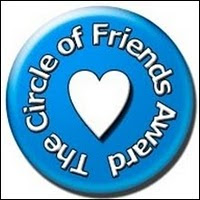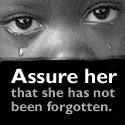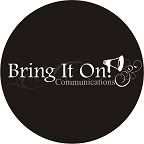Lately, the Lord has been directing me, through various means, to heal my soul. The latest tool he has used is ‘Soul Custody: Choosing to Care for the One and Only You
Here is the synopsis of this book :
:
Life is about choices. Every day we make choices that affect our lives – choices about what to eat, which job offer is best, which relationships are really worth our time. Whether we realize it or not, every choice is a decision for the life or death of our soul.
As Smith contends, “Caring for your soul is about waking up to live before you die.” Soul Custody is an invitation to accept life-giving choices that promise to revive your soul:
is an invitation to accept life-giving choices that promise to revive your soul:
Soul Care: Healing the Violence Done to Your Soul
Soul Choices: Turning Your Life Around
Soul Solace: Choosing Stillness
Soul Focus: Choosing a Simplicity of Faith and Life
Soul Serenity: Choosing to Detox from Stress
Soul Sabbath: Choosing to Cease the Insanity
Soul Identity: Choosing to Become the Real You
Soul Vocation: Choosing What to Do in Life
Soul Address: Choosing to Honor the Body-Soul Connection
Soul Companions: Choosing Your Friends
Soul Action: Moving from Choice to Action
This is not a book of easy steps to a happy life. It is a book about the challenging choice to embrace God’s dream for you. It’s an invitation to start living – to take custody of who you truly are.
Here is the biography of this author:
Stephen W. Smith is a spiritual director and the co-founder (with his wife, Gwen) of The Potter’s Inn ministry. Smith is a frequent speaker and retreat leader who is committed to spiritual growth and transformation of individuals, couples, churches, and organizations. Steve’s books, such as The Lazarus Life: Spiritual Transformation for Ordinary People
Here is Pastor Smith explaining the story behind The Potter’s Inn:
In Chapter One, Pastor Smith describes the turmoil that we as a society and as individuals are experiencing today:
Uncertainty plagues our lives. Talk shows spin pseudo-optimism, and we momentarily believe that maybe it’s not all that bad. Deep down, though, we know it is.
As it is the deep down that concerns me most. We can’t sleep. We don’t eat right. We’re constantly on the go, burning the candle at both ends. Is it any wonder that eight of the top ten drugs prescribed by doctors are mood-altering substances to help us cope with our interior turmoil?
We are sowing havoc and reaping the whirlwind. We are giving up ground that should never be surrendered. We are doing more but living less, making a living but not having a life. Some days it feels like nothing more than rearranging the deck chairs on the sinking Titanic of our lives. (p. 16)
Those are some sobering thoughts. Fortunately, he describes a solution for our distressed state:
Can’t we be saved from more than just our sins?
The wonderful news is that this salvation does exist. God never intended for us to suffer the kind of violence that’s being inflicted upon us. He never intended for us to inflict more violence upon ourselves through our own poor decision making. God provides means for us to be healed from the damage done. The kinds of choices we must make to find healing and experience transformation fall under the umbrella of soul care.
I like to remember that the word care has its roots in a Latin word that means “cure.” As we learn to care for our souls, we will also find a sense of healing from the violence happening in and around us. Caring and curing go together. (p. 17)
He goes on to explain why he wrote ‘Soul Custody:’
The purpose of Soul Custody is to help you take back what you might have lost along the way while living your life. Why should we lose our lives in vain attempts to live? For me, caring for my soul has been a journey to reclaim my life – the life I want to live and the life I was intended to live. By choosing to live in life-giving ways, my own life is being healed, cured, restored. Yours can be too! (p. 19)
I think that message needs to be heard by so many people today!
I love how he explains the subtitle of this book:
I wonder if you noticed the subtitle on the cover of this book. I don’t want you to miss it: “Choosing to Care for the One and Only You.” You will not be given another life. Or, as you’ve probably heard, this is no dress rehearsal. This is it. You have already begun the journey. You may just be getting started or possibly having to rethink everything due to a crisis, threat, or tragedy. It doesn’t matter where you are. You can begin to live a better, different life. (pp. 21-22)
Many people might consider this mindset to be selfish. Pastor Smith makes a compelling – and scriptural – case for why it is not:
I suppose the people who object in this way are just trying to be faithful to the Scriptures. But please hear me on this: Caring for your soul is never a selfish or egotistical act. In fact, caring for your soul is the opposite of being narcissistic. It is really an act of stewardship. We steward our souls by caring for them well. How can we continually give what we do not have? Caring for the soul is an act through which God can replenish your heart, restore your soul, and revive your day so you can meet the challenges of life, work, and relationships. Far from being labeled as sin, soul care is actually a biblical command.
· Proverbs 4:23 “Above all else, guard your heart. For it is the wellspring of life.”
· Deuteronomy 4:9 (ESV): “Only take care, and keep your soul diligently.”
· 1 Timothy 4:16: “Watch your life and doctrine closely.” (p. 23)
I found his explanation of the soul to be quite enlightening:
The real you, which God envisioned when He first had you in mind, is deeply loved and is a reflection of God’s image. Your soul is God given, God shaped, God sustained. Yet, as you will find, we play a vital and necessary role in our soul care. The real and the only you – the part of yourself that is alive right now as you are reading this book – is what matters the most. Take care of you. (p. 27)
God has given each of us free will and the ability to choose; we must choose wisely:
Our souls are suffering so much impoverishment because we have wrongly assumed there is an autopilot button we can push to keep going. There’s no such button. Our choice is to live or die; to grow or decay; to choose blessing or curse. The soul cannot perform and produce, achieve and acquire without careful choices. It’s that simple and that profound. (p. 37)
I focused primarily on the two chapters that deal with the issues I feel that are in most need of care for my soul – Soul Identity and Soul Vocation.
The subtitle of Chapter 7 – Soul Identity – is “Choosing to Become the Real You.” I believe that the Lord is wanting me to discover who He really created me to be. That is not necessarily easy in the culture and time in which we live. Pastor Smith opens the chapter this way:
Choosing to become who you are is one of the most important choices we can make in life. When we choose to be ourselves, we honor God’s intent with us. We recognize a holy purpose in our formation. Life becomes an unfolding of our souls that is marked by truth and transformation.
Danish philosopher Søren Kierkegaard prayed a wonderful prayer I’ve adopted for myself: “And now, Lord, with your help, I shall become myself.” There is no self-discovery that happens apart from God. Whether it is through His behind-the-scenes work or the unlikely “burning bushes” of the twenty-first century, it seems God is passionate about our knowing what He already knows about us. Becoming our true selves is a journey of transformation as we learn to give up all the false selves we have tried to be and accept ourselves – with glory and ruin inside. (p. 122)
Knowing God is the key to knowing ourselves; we need to also understand how God views us:
We become the beloved every time we rest in who we are apart from what we do, have done, or will do in life. Our beloved-ness does not depend on accomplishments, goals achieved, or quotas met. Our beloved-ness depends upon the fact that God says we are lovable – worthy of His love, attention, care, and provision for us. That’s it. (p. 134)
Isn’t it interesting how we complicate matters that are, at their core, so simple?
In the chapter entitled ‘Soul Vocation: Choosing What to Do in Life,’ Pastor Smith explains that is important that our vocation be in line with how God wired us:
The chasm between our roles and our souls need to be bridged. Living a life that feels divided between what we do for a living and who we believe we are can leave an emotional cavern the size of the Grand Canyon. This chasm can grow and expand the place in which a soul can hide – perhaps never being known, discovered or celebrated for anything other than fulfilling tasks – our jobs! We lose ourselves in our roles, never really knowing who are really are apart from our jobs. We become lost in the chasm and divided inside. (p. 142)
I was intrigued by his assessment of how we discover our true vocation:
Most of us are not given work epiphanies through which we know in a split second what we should be doing. Each step of the journey informs the next step. To borrow a theological term, it’s called “progressive revelation.” Truth grows within us and is validated and confirmed as we move to the next step or place – hopefully to a place that is better lit. Each job informs us that we are getting closer. The next one might just be the fit we’ve been looking for in our vocational quests. Paying attention to what you learn in each workplace about yourself is as important as fulfilling the certain role that your job demands of you. (p. 151)
Being that I feel that I still don't know where my place is in this world, I was encouraged by this:
It is my opinion – one that isn’t substantiated by empirical proof – that convergence does not happen in our twenties when we are starting out in our careers. It does not happen in our thirties, when energy levels are high, motivation is sharp, and drive is steadfast. It may not happen in our forties, when we enter the “midlife crisis.”
I see it mostly happening in our fifties and beyond.
…[W]e still have a resolve to do something – something we sense we were made to do. Passion has been tested in the past, but now it is the time for the release of mature passion, not just youthful energy and vigor. Bridled energy is surer, and strength is not diminished by effort. (p. 154)
The last chapter of the book is entitled ‘Soul Action: Moving from Choice to Action.’ It is important that we are in motion:
is entitled ‘Soul Action: Moving from Choice to Action.’ It is important that we are in motion:
Facing the truth about how you are doing is facing the truth about your soul. Don’t deny that you need to do this. Don’t ignore the warning signals that your soul gives you, such as stress, depression, lack of joy, relational strife, spiritual dryness, anxiety levels, preoccupation with daydreams and fantasies, time spent using technology, and more.
Neither should you ignore the positive aspects of your own fulfillment, including inner peace, contentment with life, spiritual aliveness, and exuberance about life. Instead, let these indicators, positive or negative, help you and others discern what state your soul is really in.
Admitting that we are “in trouble” or experiencing any symptoms in the above paragraph helps us to bring us to our knees. That is a great starting place. Kneel before God and tell Him about the parts of your life – which silos - are just out of control. Believe that God can help you. Turn your will over to God and begin to take responsibility for a life that will be more expansive, more soulful, and much more reflective. Your soul will do much more that survive, you’ll thrive. (p. 202)
Pastor Smith concludes his book this way:
this way:
We don’t have to lose our souls. We can value our souls enough to take custody of them and care for what matters most in life. We flourish when we tend to the life within us and care for it. We flourish and thrive when we give the soul what the soul requires to live.
My prayer is that you will begin to flourish most beautifully before the face of God.
Today I have given you the choice between life and death, between blessing and curses. Now I call on heaven and earth to witness the choice you make. Oh, that you would choose life, so that you and your descendants might live (Deut. 30:19 NLT) (p. 216)
Each chapter ends with ‘Questions for Reflection.’ These questions can be answered individually or in a group setting. I encourage everyone who has a soul – that includes all of us! – to read and work through this book. It is vital that we be as healthy in our soul as we are healthy in our body (probably even more so). So many people focus on the care of their body, and neglect the part of self that is eternal – the soul.
I had never really considered some of the concepts in this book . It makes me see life in a completely different way in so many different areas – and they are all positive for my soul. For that, I thank Pastor Smith and his wife, Gwen, for the work they have done to bring these ideas to the rest of us.
. It makes me see life in a completely different way in so many different areas – and they are all positive for my soul. For that, I thank Pastor Smith and his wife, Gwen, for the work they have done to bring these ideas to the rest of us.
You can order this book here .
.
This book was published by David C. Cook and provided by The B&B Media Group for review purposes.






























.jpg)







2 comments:
I found this to be true"…[W]e still have a resolve to do something – something we sense we were made to do. Passion has been tested in the past, but now it is the time for the release of mature passion," as I began teaching a weekly after-school Bible club for 1st-5th-graders at local elementary schools when I was 57and newly retired. It's called "Good News Club," sponsored by CEF (Child Evangelism Fellowship). It is the most rewarding thing, other than being a wife and mother, that I have ever done in my life. About 40 or 50 kids have received Christ as their Savior over the last 5 1/2 years at my Good News Clubs. I feel humbled and awed that God has used me in this way. Some of the kids' families have begun coming to church, too, and some parents have received Jesus as their Savior, too. "God is able to do immeasureably more than all we can ask or imagine." To God be all the glory!
Wow!
God is really the God of all Gods...
He's immeasurable and awesome!
May the Lord bless the work of your hands.
Post a Comment